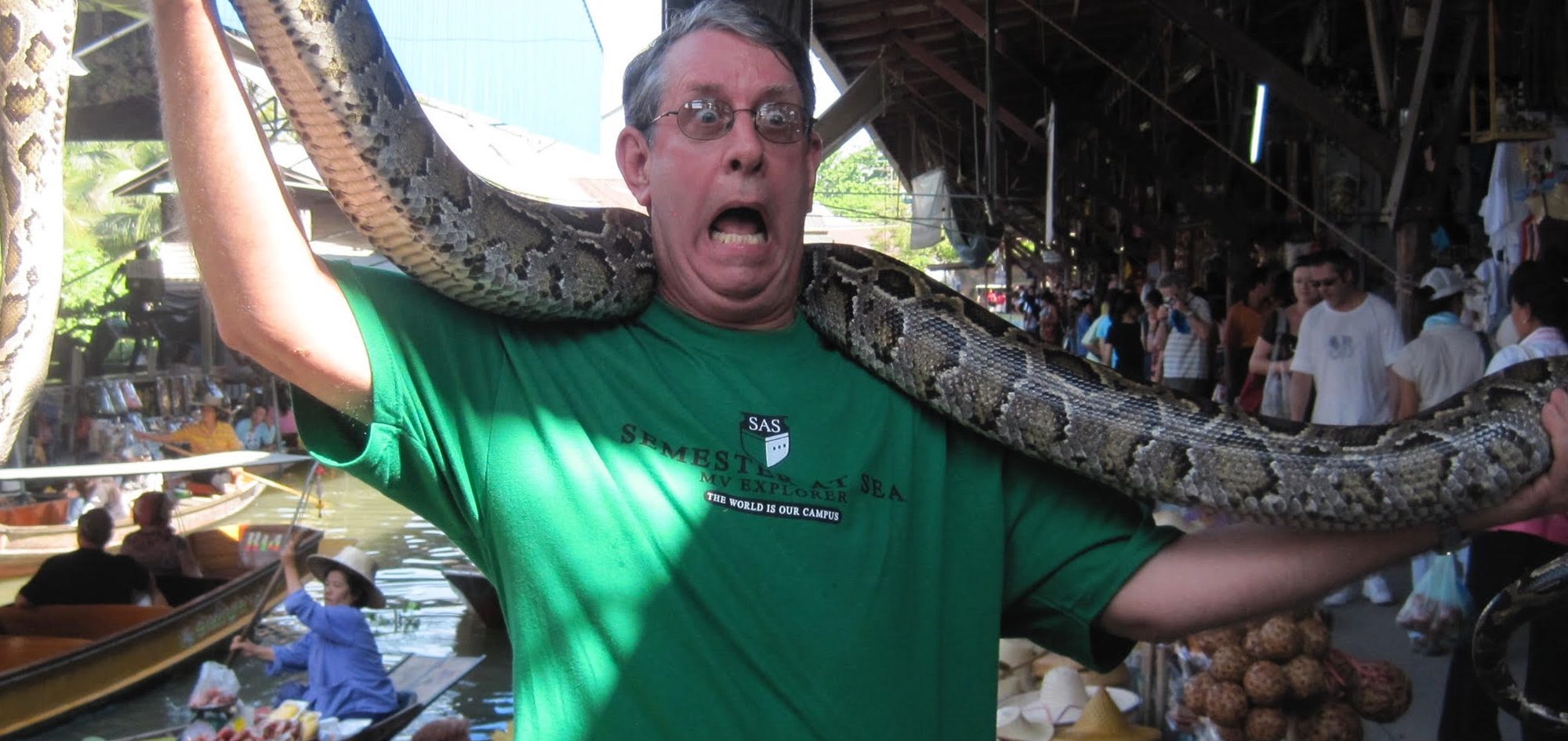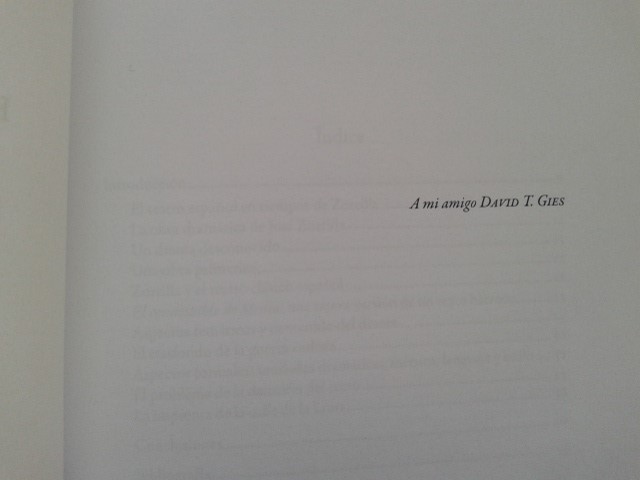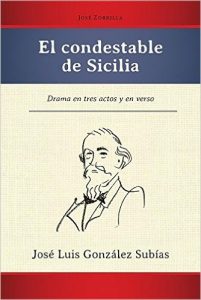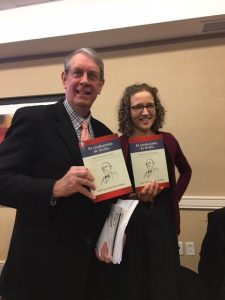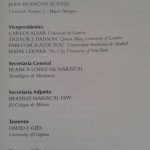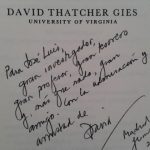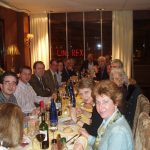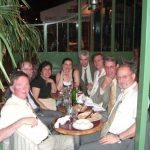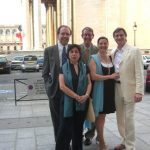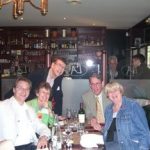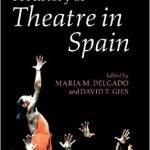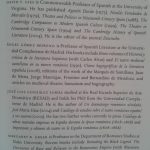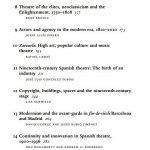Querido profesor
de David F Fernández-Díaz
Querido profesor:
Mi más sincero agradecimiento por tantos momentos, académicos y personales, tan constructivos y enriquecedores.
Un auténtico placer haberle tenido como mentor, director de tesis y compañero de viaje.
Un fuerte abrazo de David F. Fernández-Díaz.
Dear David and Janna
By Joe Snow
A MI AMIGO DAVID T. GIES
de José Luis González Subías
(Profesor, crítico e investigador teatral, Madrid, España)
Esta es la dedicatoria que incluí en mi edición de la primera y desconocida obra teatral de José Zorrilla (El condestable de Sicilia), que tuve la fortuna de encontrar y publicar más tarde, a finales de 2016. Nadie mejor que mi amigo y mentor David Gies para presidir unas páginas que ligarán ya nuestros nombres para siempre, al lado del más internacional de nuestros admirados poetas dramáticos del Romanticismo español.
Conocí a David personalmente en el otoño de 1996, en el I Coloquio de la SLES XIX, donde impartí mi primera comunicación en un congreso internacional. David Gies era para mí entonces solo un nombre, el del autor de una obra fundamental para los estudiosos del teatro romántico español, The Theatre in Nineteenth-Century Spain (1994), cuya traducción acababa de publicarse en España. Su amabilidad y cercanía enseguida me cautivaron; tanto como lo habían hecho sus arriesgadas y novedosas ideas respecto a la dramaturgia decimonónica, cuya importancia supo valorar como pocos hasta entonces. Volvimos a encontrarnos pocos años después. Acababa yo de defender mi tesis doctoral, dedicada a un dramaturgo romántico olvidado —no para David—, y quise regalarle un ejemplar a quien tanto admiraba. Y así surgió nuestra primera cita madrileña, esas que tantas veces hemos repetido desde entonces, siempre que David ha viajado a España y ha tenido la amabilidad de acordarse de mí y de mi mujer.
Son muchos los recuerdos que me unen a David Gies, y todos son divertidos y positivos. Nadie como él para llevar la alegría a su alrededor y saber aprovechar cada momento haciendo de la vida algo fácil y distendido. Porque el humanismo de David no es impostado ni ha sido adquirido en los libros; su amor por la vida y las gentes es real, nace de él de forma natural; y su humildad y sencillez le hacen sentarse a la mesa del rey de España con la misma naturalidad —y deleite— con que degusta un buen vino junto a un amigo.
En 2004, durante la celebración del XV Congreso de la AIH, David, que por entonces era tesorero de la asociación, tuvo la amabilidad de confiarme el cargo de tesorero adjunto para Europa, lo que estrechó definitivamente nuestra relación y nuestra amistad.
El XVI Congreso de la AIH, celebrado en París (2007), nos deparó bellos momentos que quedarán para siempre en mi memoria.
La confianza y aprecio que David siempre me ha otorgado volvió a concedérmela hace unos años, al encargarme un capítulo del importante libro que editó junto a Maria M. Delgado con el título de A History of Theatre in Spain (2012), excusa que volvía a unirnos de nuevo para mantener viva una relación y un afecto que no ha dejado nunca de crecer.
Es mucho lo que he aprendido de David Gies, como estudioso y como persona, y doy gracias porque “la fuerza del sino” juntara nuestras vidas un día venturoso. Espero con ganas nuestro próximo encuentro, querido amigo. Gracias por todo.
Salonniers and sunset at Montalto
by Allison Bigelow
In February, 2013, David and his colleagues hired me to teach colonial Latin American literature. In the spirit of the 18th century, I arrived fashionably late. In September, 2014, when I officially joined the department, David wasted no time in welcoming me into a vibrant intellectual community of scholars for whom the early modern past isn’t past at all, but instead bears meaningfully upon the present. Never inclined to take themselves too seriously, the interdisciplinary eighteenth century working group that David and Cindy Wall so beautifully and generously organize insists on three key rules: serve lots of wine, bring good cheese, and don’t assign homework. The trifecta of scholarly stewardship!
Having participated in the group for three-ish of its twenty-plus year existence, and thus considering myself a true expert here, I would add two more rules that this group of salonniers assiduously follows: ask rigorous questions, and do so with kindness, and make sure that cocktail hour includes at least one sunset at Montalto. (Photo attached, because, as David would say, pix or it didn’t happen.)
To David and Jana, thank you for all of the ways that you have made new members of the university community feel welcome and encouraged here. You have left a legacy that is and will be deeply felt. Congratulations on your next steps and all the very best to you and yours.
The Inspiring Mentor
by Elizabeth (Betsy) Franklin Lewis
For many of us, UVA, Spanish Studies,the Hispanic Enlightenment and Spanish Romanticism, as well as Spanish theater and film studies are synonymous with David Gies. Many of David’s students, like myself, owe their profession to him. For me, I can trace it to a specific night in Charlottesville, spring semester 1988 during the five minute break we got mid-way through our Spanish 560 Enlightenment to Romanticism course. David trained me to be a good dieciochista, backing up myself with the historical texts, so I’ve been digging in my own personal archives and found some artifacts of interest. First, I found this Kinko’s packet.
For you youngsters who don’t know what a Kinko’s pack is, this is what we used before pdf’s and stringent copyright restrictions! But the document to the right, is what I was really hunting for—my term paper for the course. This paper, rather David’s reaction to the paper, was the beginning of my professional life. You can see it full of red marks. It was titled “Discurso en defensa de la mugeres” por Josefa Amar y Borbón. David remarked “What about a snappier title?” Later in the paper, David schooled me in feminist rhetoric:
But it was what he did during that 5 minute break that made (and didn’t break) my world. We were out on the hall of New Cabell, drinking our diet cokes to stay awake through the long late afternoon seminar, and David (Mr. Gies to me then) pulled me aside and said “Betsy, I really liked your paper, and I think with some work you could publish it….in Dieciocho”
In Dieciocho!!!!! Oh my God!!! Now, this was 1988, before Dieciocho was Dieciocho under David’s guidance. But I knew the journal, because I had used articles published from it in my research. I was at the end of my first year of my MA. I was enjoying my studies, but was still very unsure of myself. I was about to head off for a year in Costa Rica on a Rotary Scholarship that I had won as an undergraduate but couldn’t start until that summer, and I wasn’t really sure that was where I wanted to be. Those few words, that show of confidence, that little extra push, was just what I needed at that moment. Later, I did work on publishing the article, and I expanded the paper for my Masters’ tesina, and I kept developing the topic into my dissertation, my first book, and now… here I am! Not only am I still working on women writers in the eighteenth and nineteenth centuries, but I’m also following David’s model to try to be that same sort of professor to new generations of students. Thanks David, you have been, and continue to be, an inspiration!
Elizabeth (Betsy) Franklin Lewis, University of Mary Washington
A Resolution for David Gies
This is a copy of a resolution introduced by Charlottesville Representative David Toscano recognizing the career of David Gies.
Resolution David Gies